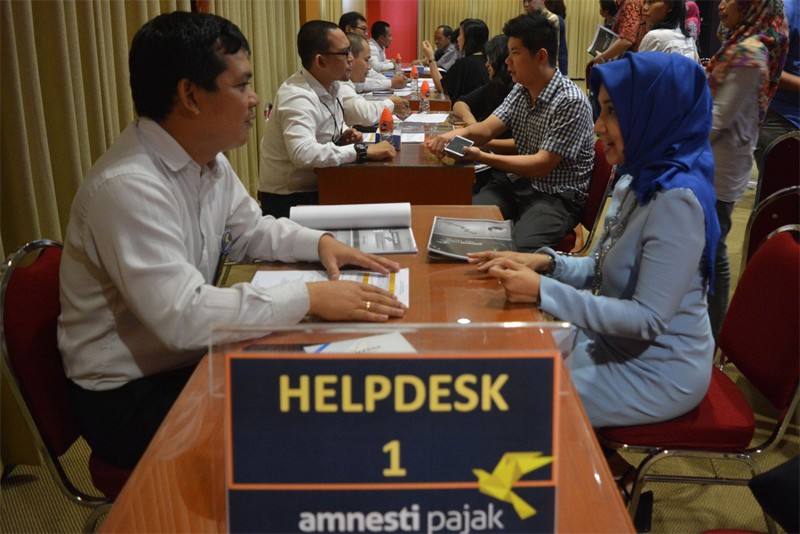Popular Reads
Top Results
Can't find what you're looking for?
View all search resultsPopular Reads
Top Results
Can't find what you're looking for?
View all search resultsIndonesia tax office to chase evaders’ assets
Change text size
Gift Premium Articles
to Anyone
T
he tax authority is flexing its muscles to teach tax evaders a thing or two about the consequences of money laundering, namely the confiscation of their assets.
The strategy is based on the assumption that the existing minimal repercussions do not provide a sufficient deterrent effect for potential tax evaders.
“The perpetrators are brave enough to repeat their crimes in the future if they are only facing several years in prison,” Taxation Directorate General law enforcement director Dadang Suwarna said on Thursday.
That, however, will change as the tax office seeks to fully implement the Countermeasure and Eradication of Money Laundering (TPPU) Law.
“With [the anti-money] laundering law, they will think twice before committing such acts because all of their assets, including those owned in the names of their family members, will be confiscated,” Dadang said.
The law was actually passed in 2010, but money laundering investigations were rarely conducted as part of tax evasion cases.
The tax office’s move to bring its seven-year-old authority into play comes on the back of a stubbornly low tax compliance ratio and the government’s pursuance of higher tax revenues.
The office is convinced that by carrying out money laundering investigations, tax compliance will improve in the future, believing that asset confiscations will create a deterrent effect that would prevent former tax evaders from re-offending.
Indonesia’s current tax-to-gross domestic product (GDP) ratio stands at below 11 percent, the lowest among its regional peers, despite it being the largest economy in Southeast Asia.
In 2016, the government only managed to reap Rp 1.1 quadrillion (US$82.55 billion), 81.5 per- cent of its tax revenue target.
The tax office completed 58 alleged tax evasion cases as of last year, 40 of which have been considered legitimate by the Attorney General’s Office (AGO) to be followed up for prosecution in the court.
Suspects in the 40 cases can avoid being tried in court if they agree to pay their tax arrears, plus a 400 percent fine as stipulated in the General Taxation System (KUP) Law.
Meanwhile, on Thursday, the tax office announced it had confiscated assets totaling Rp 26.8 billion from Amie Hamid, a businessman accused of laundering the proceeds from selling fake tax invoices worth Rp 123.4 billion.
He reportedly gained more than Rp 49 billion from the sales.
The confiscated assets comprise Rp 441 million in cash from a canceled apartment purchase, eight pieces of land and buildings worth a combined Rp 24.5 billion, and nine vehicles valued at Rp 1.9 billion.
The tax office has handed the confiscated assets over to the South Jakarta Prosecutor’s Office. If found guilty of money laundering, Amie faces a maximum prison term of 20 years and a Rp 10 billion fine.
The money laundering investigation itself is a follow-up of a previous probe into Amie’s falsification of tax invoices, which saw him sentenced to two years in prison and a Rp 246.8 billion fine in 2016.
Darussalam, managing partner at the Danny Darussalam Tax Center (DDTC), said the government should send a signal of strong law enforcement to the public, especially after its tax amnesty program ends in March.
The amnesty can widen the taxpayer database, which will be essential to establish long-term tax compliance, he said.
“But there should also be a commitment to building public trust and a spirit of providing better tax services. With such efforts, there will be stronger tax compliance, whether it is enforced or voluntary post-tax amnesty,” he said.










